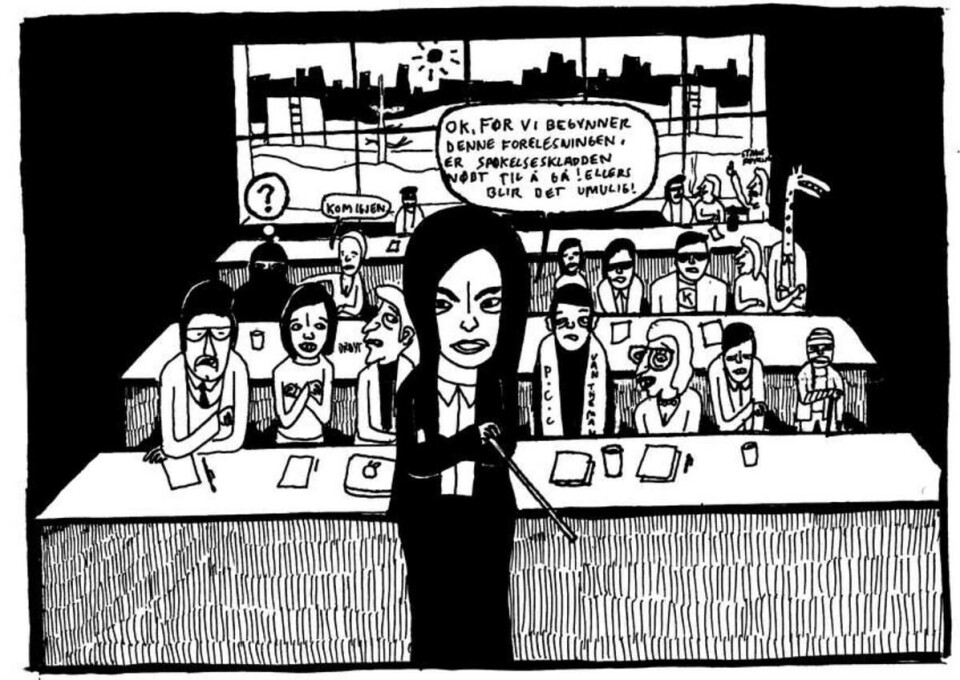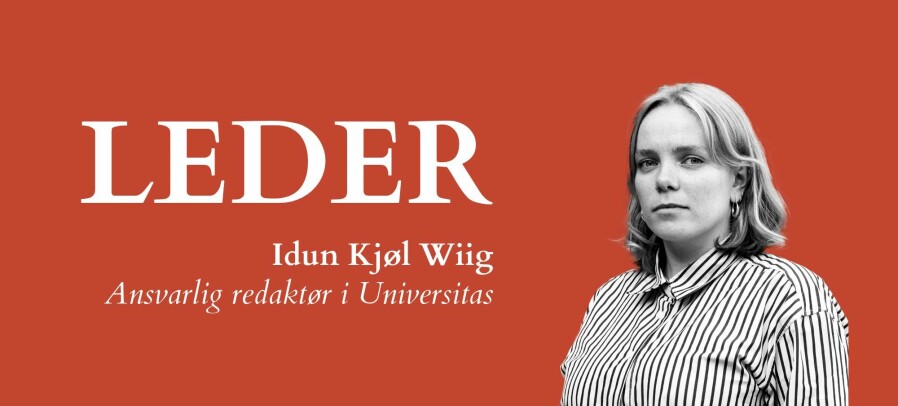
The Unbearable Lightness of Integrating
What exactly is the reason behind the niqab ban?
Once more, a word of foreign origin has become part of our vocabulary, and as usual, it has become known to us through a ban that wants to forbid the thing it signifies. This time it’s the niqab, a veil which covers the face but usually leaves the eyes visible. It is Head of Studies at Oslo University College, Lars Gule, who has proposed to ban niqabs at every university and college in Norway. And he is supported by Øystein Djupedal, the Minister of Education and Research, who after a short hesitation has decided to agree with Gule’s statement that the niqab renders teaching and other education situations impossible.
If I were to show up at a lecture with a big bandage on my face, would I be guilty of rendering the lecture impossible ?
Replace «niqab» with «heroin», and I can understand the concern, but it is very difficult to see how the fact that some of the students in a lecture hall have a veil covering their faces can in any way render the lecture impossible. If I were to show up at a lecture with a big bandage on my face, would I be guilty of rendering the lecture impossible? The conclusion is evidently absurd, something which raises the suspicion that this has nothing at all to do with education situations. So what is the real motivation behind the proposition?
Perhaps the real reason behind the ban can be derived from something else Gule has said; that the students who wear niqabs cannot expect to be offered a job when they finish their education. This is not the first time integration has been reduced to a financial matter, but it doesn’t become much clearer than this that the economic system has become more important than ethics. Based on the fact that a lot of employers really are sceptical to the things they do not understand, these girls become unethical since they are willing to segregate themselves from the labour market. The problem then, is not the lecturers’ attitude, or that of the employers, but the Muslim women’s unwillingness to sacrifice private preferences in order to adjust to the Norwegian community. While the politicians and the media give voice to immigrants who chooses to become lawyers, tire millionaires and politicians; the success stories of integration, cases such as this one illustrates the lack of accept for everyone who chooses to stand out in ways which people cannot understand.
Gule’s statement concerning the students who wear niqab and how they cannot expect a job offer when they graduate, is a poorly covered continuation of this attitude. Especially when the only evident argument for a ban on niqabs is that economic considerations renders it necessary to remove all visible signs that Norwegians are different from each other.
The goal of integration seems to be to get everyone into the labour market, something which apparently means to be pragmatic and to take the employers’ attitude into consideration. And if this, for instance, means that we must force Muslims to stop their «unfortunate» cultural or religious practices, then the end evidently justifies the famous means.

































